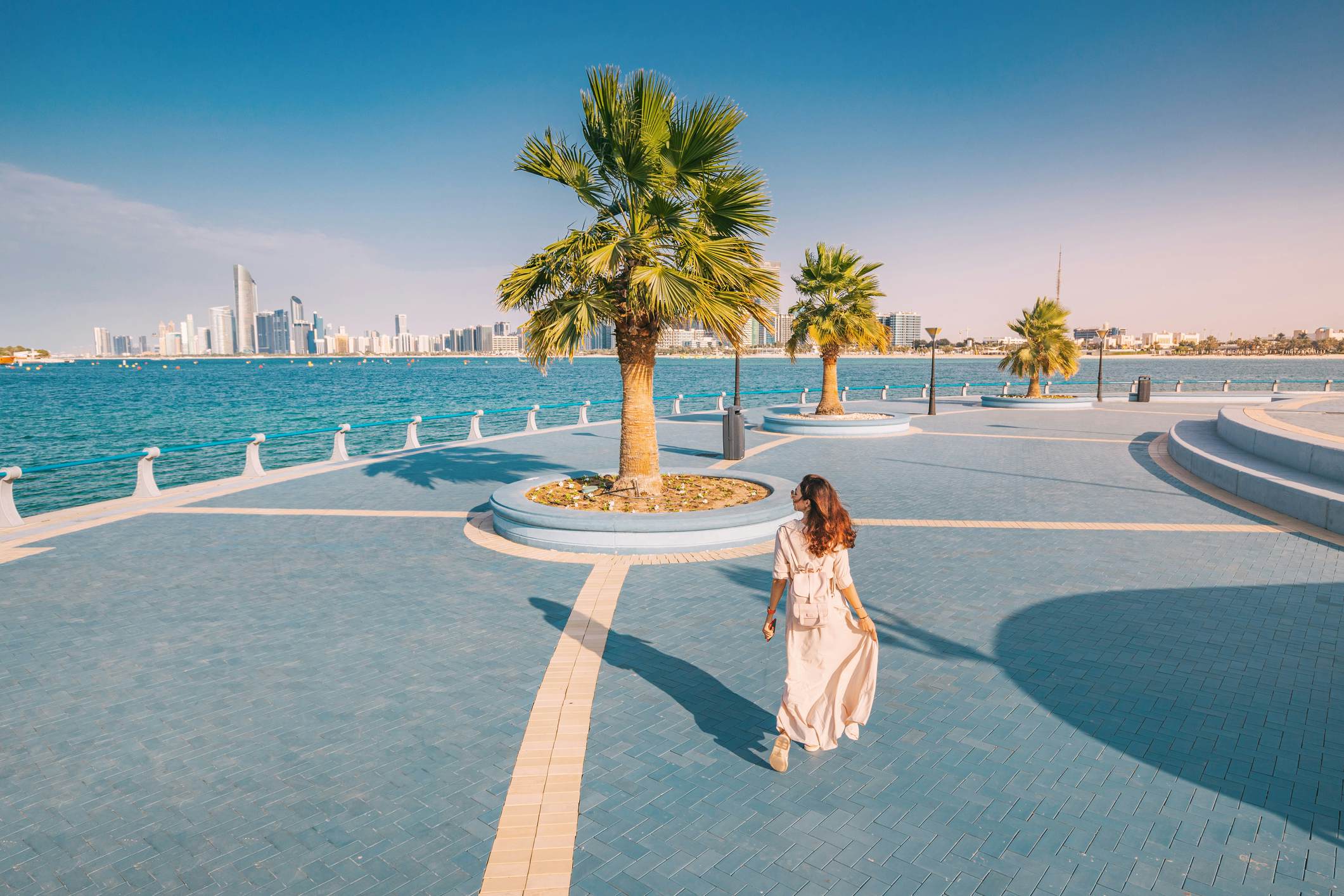Digital health funding declines for the third year in a row
AI-enabled digital health startups raised $3.7B, 37% of total funding for the sector
Read more... In 2022, the Environment Agency - Abu Dhabi (EAD) launched the Abu Dhabi Environmental Centennial 2071, which it called, "a shared, comprehensive environmental vision for the Emirate for the next 50 years, and its commitment to make Abu Dhabi the world’s best in environmental conservation."
In 2022, the Environment Agency - Abu Dhabi (EAD) launched the Abu Dhabi Environmental Centennial 2071, which it called, "a shared, comprehensive environmental vision for the Emirate for the next 50 years, and its commitment to make Abu Dhabi the world’s best in environmental conservation."
"The Environmental Centennial 2071 was developed with the aim of taking an active part in achieving the leadership's vision for the next 50 years. It reinforces Abu Dhabi's global position in environmental conservation by setting future visions, goals and plans that align with the future global megatrends and the UAE's long-term visions, as well as future pressures, goals, and practices," EAD wrote at the time.
On Wednesday, EAD announced the results of progress made during the past year in implementing the first Abu Dhabi Plan, which is part of the journey fulfilling of the goals of the Environmental Centennial 2071. The first plan will run from 2023 to 2025.
During 2023, a total of 212 experts realized 195 achievements and positive outcomes, EAD said, while its partners also accomplished an additional 32 achievements and positive outcomes outside of the 2023-25 Environmental Centennial programmes.
Those partners included the Department of Municipalities and Transport, the Department of Culture and Tourism, the Department of Energy, the Department of Government Enablement, Department of Economic Development, Abu Dhabi Agriculture and Food Safety Authority, Abu Dhabi Public Health Centre, Abu Dhabi Mobility, and Abu Dhabi Maritime.
EAD and its partners sought to implement the three strategic pathways of the Centennial, including its 65 action programs, 14 of which have been completed.
Three pathways
The first pathway, Vibrant Emirate Thriving in Nature, includes 23 action programs, including planting more than one million mangrove seeds using drone technology to achieve sustainable biodiversity, as well more than 800,000 fragments of coral.
In addition, a plan for the development of aquaculture in Abu Dhabi was created, while the locally manufactured eco-mattresses that support the marine environment in Abu Dhabi Marinas won a global award for innovation in the field of sustainability. A plan was also created for sustainable agricultural development in Abu Dhabi, with the aim of increasing water-use efficiency and the appropriate use of crops per land type; as a result, the use of recycled water increased to 72%.
As part of the pathway, a 33 kilometer pathway was created for micro-transportation, such as cycling and walking, while an air purification tower was inaugurated on Al Hudayriat Island, which purifies 30,000 cubic meters per hour.
Finally, to achieve an optimal environment for a healthy society, a road map was developed to establish a One Health System for Abu Dhabi in partnership with international universities.
The second pathway, known as Green Force Resilient to Climate Change, includes 23 action programs, such as the five-year Abu Dhabi Climate Change Strategy, which includes 85 projects managed by 15 entities with the goal of reducing emissions by 22%.
It also includes The Abu Dhabi Energy Outlook 2050, a long-term framework for a gradual transition towards carbon neutrality; other initiatives include the deployment of technologies and practices to ensure that the agricultural sector is climate smart, and the launch of the pilot phase of the hospitality sector Carbon Calculator.
Currently, clean energy makes up 45% of Abu Dhabi’s total energy mix, which EAD attributes to the operation of the Barakah 3 nuclear power plant and Al Dhafra solar power plants.
The pathway also includes a strategy to reduce food loss and waste, with the aim of achieving a circular economy and zero waste. Part of that involves 70 vending machines and 26 smart containers that can recover used disposal plastic bottles, which were placed across the emirate; to date, they have recovered over 1,000 tons of plastic waste.
The third pathway, called Enablers for Future Environmental Leadership, includes 19 action programs, with a focus on enhancing Abu Dhabi’s environmental leadership. That includes publishing historical discoveries related to the oasis environment at five national and international conferences, while 13 facilities were awarded the Green Industries Environmental Label for their contributions to adopting sustainable practices.
The pathway also includes six sustainable tourism guidelines, covering cultural and heritage sites, events, food and beverages, hotels, entertainment, travel agencies, and tourist trips. So far, more than 2,000 users registered for the first free green e-learning platform in the Middle East, and three new courses were launched, while 400 publications, such as electronic and audio books, were converted into digital copies, and two books were published on topics related to environmental awareness.
An electronic course was developed on green development policies, which has already been completed by more than 2,000 government employees, while a training program was also held for government leaders on public policy on sustainability frameworks, in partnership with international universities.
Finally, the Abu Dhabi Environmental Research Network (ADERN) was launched, comprising eight universities and more than 250 members promoting innovation in green science and technology, and multiple research projects were conducted aboard the research vessel Jaywun, including an atmospheric research trip that sailed via 25 countries and eight seas.
(Image source: lonelyplanet.com)
AI-enabled digital health startups raised $3.7B, 37% of total funding for the sector
Read more...OXcan combines proteomics and artificial intelligence for early detection
Read more...Nearly $265B in claims are denied every year because of the way they're coded
Read more...